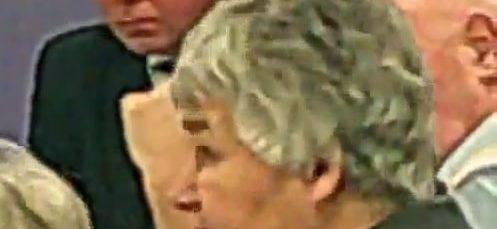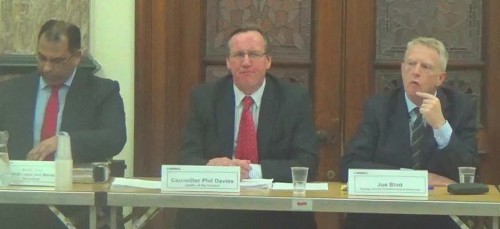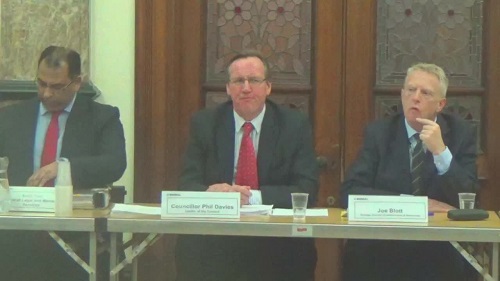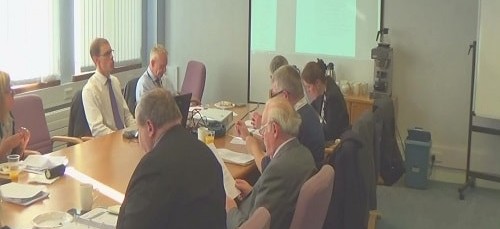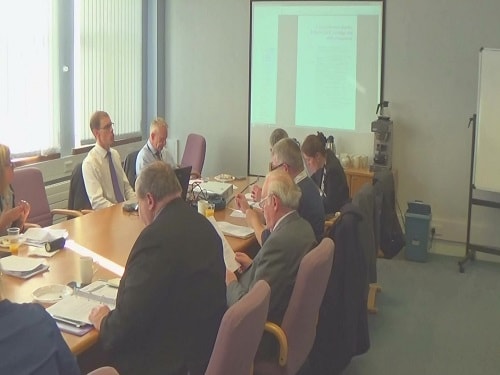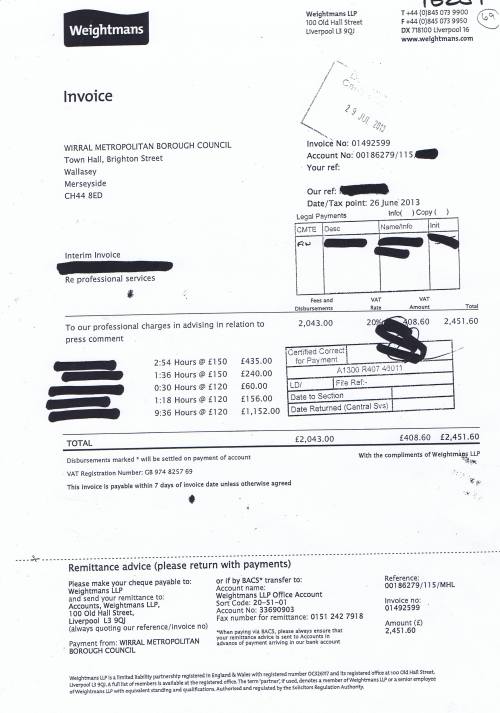Wirral Council recommends councillors agree to advice that those who contact the press about complaints about councillors are “compromising their position”!
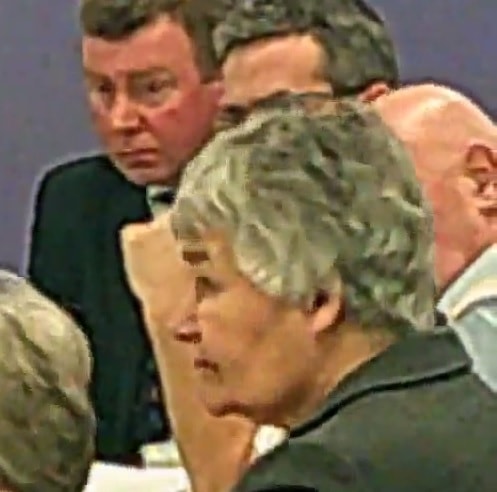
As some of the below relates to the press in general I am declaring an interest as that’s my paid occupation.
On Thursday evening starting at 5.00pm in Committee Room 3 in Wallasey Town Hall Wirral Council’s Standards and Constitutional Oversight Committee meets for a special public meeting.
The papers and agenda for the meeting have been published on Wirral Council’s website, including a 44 page supplementary agenda published late.
Often the motivation at the past at Wirral Council with regards to late papers not sent out with the agenda/reports for the meeting are that it is a way for officers to really make sure something is "rubber-stamped" (and if you really want it rubber-stamped just hand out about two dozen pages of information at the meeting itself on the basis that those on the Committee won’t have time to read it before reaching a decision).
I’ve written an email below which explains my position (in the interests of openness and transparency it is below). I look forward to the meeting itself to see what is decided.
Subject Standards and Constitutional Oversight Committee (Special Meeting) 2nd June 2016 item 4 (Appointments of Panels)
From John Brace <john [at] johnbrace.com>
To Cllr Denise Roberts (Chair, Standards and Constitutional Oversight Committee) deniseroberts@wirral.gov.uk
Copy Cllr Moira McLaughlin (Vice-Chair, Standards and Constitutional Oversight Committee) moiramclaughlin@wirral.gov.uk, Cllr Ron Abbey ronabbey@wirral.gov.uk, Cllr Brian Kenny briankenny@wirral.gov.uk, Cllr Chris Blakeley chrisblakeley@wirral.gov.uk, Cllr David Elderton, Cllr David Elderton davidelderton@wirral.gov.uk, Cllr Gerry Ellis gerryellis@wirral.gov.uk, Cllr Phil Gilchrist philgilchrist@wirral.gov.uk, Cllr Jean Stapleton jeanstapleton@wirral.gov.uk, Cllr Eddie Boult eddieboult@wirral.gov.uk, Surjit Tour surjittour@wirral.gov.uk, Shirley Hudspeth shirleyhudspeth@wirral.gov.uk, Press Office (Wirral Council) pressoffice@wirral.gov.uk
Reply-To John Brace <john [at] johnbrace.com>
Date Today (31st May 2016) 8:39 am
To: Cllr Denise Roberts (Chair)
Cllr Moira McLaughlin (Vice-Chair)
Cllr Ron Abbey
Cllr Brian Kenny
Cllr Paul Stuart c/o Shirley Hudspeth
Cllr Chris Blakeley
Cllr David Elderton
Cllr Gerry Ellis
Cllr Phil Gilchrist
Cllr Jean Stapleton
Cllr Eddie Boult
Professor Ronald Samuel Jones c/o Shirley Hudspeth
Brian Cummings c/o Shirley Hudspeth
Chris Jones c/o Shirley Hudspeth
Surjit Tour
Press Office (Wirral Council)
Dear all,
I do not have email contact details for the independent members on the Standards and Constitutional Oversight Committee and Cllr Paul Stuart and hope that Shirley Hudspeth can give them either a copy of this at the meeting itself, or may know their email addresses to forward them a copy of this email.
I know that two councillors (Cllr Brian Kenny and Cllr Gerry Ellis) are sending deputies and am sending a copy of this both to the councillor deputising and the councillor they are deputising for. If any other councillors are planning to send a deputy to the meeting feel free to forward this to the deputy.
This email is in relation to item 4 (Appointments of Panels) on the agenda of the Standards and Constitutional Oversight Committee meeting to be held on the 2nd June 2016.
The papers for this were published late and can be found in the supplementary agenda. Please note that in order for the committee to consider material published after the 5 clear working days before the meeting, it’s a legal requirement that both the Chair (presumably Cllr Denise Roberts) accepted this item of other business and the reasons for accepting it late are recorded in the minutes. I’m sure Mr. Tour will be familiar with this as it formed the basis last year as to my formal objection to the 2014/15 accounts of the Merseyside Pension Fund (administered by Wirral Council) with the result being that the Pensions Committee had to arrange a further meeting to properly approve the accounts.
However, I have some general questions/queries. In the interests of openness/transparency I’m publishing this email, so it’s not confidential.
1) As the people proposed to be on the Standards Panel & Standards Appeal Panel are also members of the Standards and Constitutional Oversight Committee are both panels being categorised by Wirral Council as a sub-committee, similar to how the Licensing Act Sub-Committee members are also drawn from its parent committee?
2) In the proposed protocol it states,
“12.5 Anyone involved with the investigation will be advised that they may be compromising their position if they communicate with the media on matters relevant to the investigation whilst the investigation is ongoing and that any communication that is made should emanate from the Council’s communication team.”
The legal requirement for secrecy of those involved with the investigation of complaints about councillors was repealed some time ago. Because of s.6 of the Human Rights Act 1998 a public authority (such as Wirral Council) can’t make a decision which causes it to act in a way incompatible with a Convention right. This suggestion in the protocol would seem to conflict with both the Article 10 (freedom of expression) Convention right and the whistleblowing provisions in the Public Interest Disclosure Act 1998. I would therefore either like a detailed explanation as why this is proposed (or why I am wrong) or for it to be removed from the proposed policy before it is agreed.
3) Part 21.1 of the proposed policy refers to “7C of the Council Access to Information Procedure Rules”.
This refers to the following reason for excluding the press/public at a meeting:
“7C. Information presented to a standards committee, or to a sub-committee of a standards committee, set up to consider any matter under regulations 13 or 16 to 20 of the Standards Committee (England) Regulations 2008, or referred under section 58(1)(c) of the Local Government Act 2000.”
A local council can only use powers it legally has to do something. Standards complaints about councillors are no longer considered under s.58(1)(c) of the Local Government Act 2000 (which was repealed) or the Standards Committee (England) Regulations 2008.
Therefore the references to a repealed legal power need to be brought up to date to the current position and Wirral Council’s constitution updated to prevent confusion.
I plan to attend the meeting itself and look forward to hearing an answer to this email then.
Yours sincerely,
—
John Brace
Editor
http://johnbrace.com/
A blog about Wirral Council’s public meetings, Wirral Council’s councillors, Bidston & St. James ward and other public bodies on Merseyside
If you click on any of the buttons below, you’ll be doing me a favour by sharing this article with other people.
